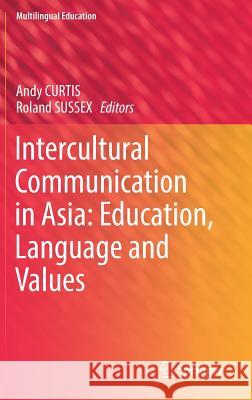Intercultural Communication in Asia: Education, Language and Values » książka
topmenu
Intercultural Communication in Asia: Education, Language and Values
ISBN-13: 9783319699943 / Angielski / Twarda / 2018 / 280 str.
Kategorie:
Kategorie BISAC:
Wydawca:
Springer
Seria wydawnicza:
Język:
Angielski
ISBN-13:
9783319699943
Rok wydania:
2018
Wydanie:
2018
Numer serii:
000450976
Ilość stron:
280
Waga:
0.60 kg
Wymiary:
16.5 x 24.5 x 2.2
Oprawa:
Twarda
Wolumenów:
01
Dodatkowe informacje:
Wydanie ilustrowane











